THE “APPEAL” OF GLOBAL WARMING
Scientists talk about Global Warming as a problem (or even pending disaster) so often that it may be hard to take seriously. After all, most people seem to like warmer winters, the flowers to bloom earlier and a warmer ocean to swim in. No wonder Global Warming is always WAAAAY down on the list of things the public worries about the most.
“GLOBAL WARMING FEELS QUITE PLEASANT”
I didn’t say it-it’s the title of an article in the New York Times last Thursday. A paper in the latest issue of the journal “Nature,” the authors write that ”for a vast majority of Americans, the weather is simply becoming more pleasant. Over the past four decades, winter temperatures have risen substantially throughout the United States, but summers have not become markedly more uncomfortable.”
(Of course, there are some who hate many of the changes we’ve seen: skiers who bemoan the shorter season; snow plow operators not happy about making less money; and certain students and teachers who are upset about fewer “snow days”. But that is a small minority.)
So, the obvious result is a contradiction between what many scientists and politicians have been saying. It’s hard to be concerned about something that is showing so few obvious signs of the serious problem that is likely ahead of us. We can raise our voices and point at charts of ice loss in the Arctic and all we get is yawns from too many people. And I’m afraid that there’s not much that can be done about this. It’s hard to tell folks to not believe what they’re seeing with their own eyes.
HERE’S WHAT PEOPLE AREN’T SEEING
Local
Breaking news and the stories that matter to your neighborhood.
Not many people have traveled to the Arctic to see the dramatic loss of ice that has occurred from Alaska to Greenland (and beyond). And even if you do travel there, there’s no basis for comparison. Only the people who live in those areas can clearly see the dramatic changes that have occurred over recent decades.
Here is what those of us in the Continental U.S. cannot see:
1. Carbon dioxide itself-it has no color or smell. But it can be measured, and has steadily increased for more than 50 years.
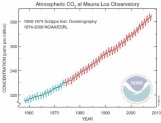
2. Deadly heat waves-in Europe, the Middle East, South Asia (India/Pakistan), East Asia (Japan/China), Russia, and more:
2003 Europe 50,000-70,000 killed
2010 Russia 56,000
2006 Europe 3400+
2015 India 2500
2015 Pakistan 2500
2010 Japan 1700+
3. Loss of Arctic sea ice
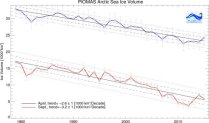
4. Loss (and darkening) of Greenland sea ice
5. Warming ocean temperatures
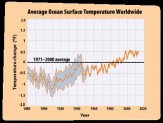
6. Warming of subsurface ocean
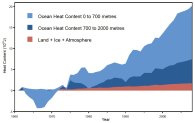
7. Rising sea level
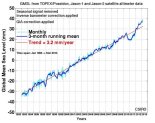
9. Ocean acidification
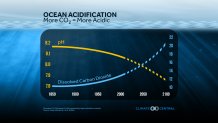
10. Coral bleaching
THIS IS WHAT IS BECOMING MORE OBVIOUS
1. More downpours=worse flooding
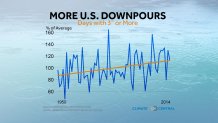
2. Intensity of winter storms (warming=more water vapor=”wetter” storms
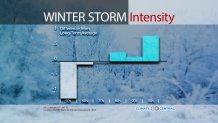
3. More frequent and more severe coastal flooding
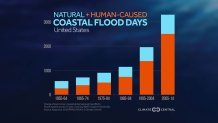
All of the above changes are agreed on by most climate scientists. These are not computer projections-this is based on actual data.
There is more disagreement about the following, but evidence of a global warming connection seems to be increasing:
1. More intense tropical cyclones (hurricanes & typhoons). Total numbers of storms haven’t changed much, but a greater percentage has become intense in recent years.
2. More heavy snowstorms. The total number of days with snow has decreased in many areas, but a greater percentage of snowstorms has become major in recent years
3. More frequent and more severe droughts. Many scientists are convinced that warming temperatures have already led to this.
IF YOU THINK IT’S OBVIOUS NOW……
It wasn’t that long ago that most climate scientists didn’t expect many of these major changes to show up for decades. For example, the Arctic ice melt is happening WAAAAY faster than their computer models showed. These changes are not likely to reverse themselves in the future, as long as global temperatures continue to rise.
Eventually, with enough of these changes becoming obvious, more and more people will care a lot more about climate change. Unfortunately, by the time this happens, it will be even harder to stop the changes, let alone reverse them. We’ve been “teased” by the “nice” weather. So far.
Glenn “Hurricane” Schwartz
Chief Meteorologist, NBC10 Philadelphia



